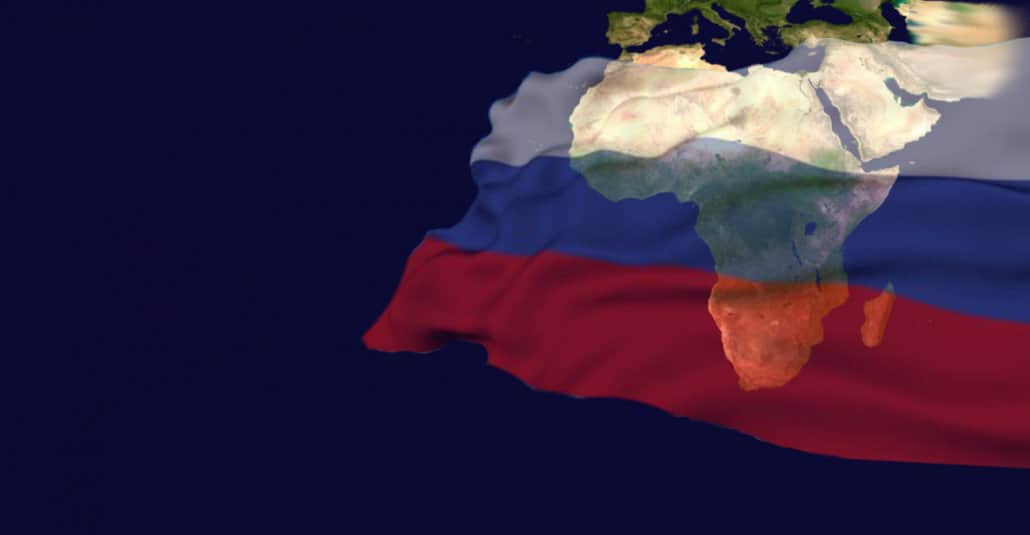First published on Financial Transparency Coalition
During the last decade, Russia has expanded its interests and presence in Africa by investing in the mining sector and increasing military support to fragile states, primarily through private military contractors and mercenaries. One of Africa’s most prominent private military groups is the Wagner Group, believed to be financed by one of Russian President Vladimir Putin’s closest allies, Yevgeny Prigozhin, who is currently facing sanctions. This group is active in several fragile states, including Libya, Mali, the Central African Republic (CAR) and Sudan.
As the war in Ukraine rages on, several countries have targeted Russian elites through sanctions, freezing and seizing their assets. Africa faces two possible scenarios that could occur as a result of the tightening of these regulations.
Scenario 1: sanctions squeeze Russia out
As the sanctions continue, Russian-backed operations in Africa could find it hard to continue being funded, leading to a scaling down of Russian operations on the continent. This could in turn result in a subsequent reduction in the illicit flow of resources from the continent as Russia’s arms and military contractor support have been linked to illegal trade in minerals such as gold and diamonds. Both rebels and governments in these countries have been known to rely on this trade to finance their operations and arms purchases.
Despite this, it still remains unclear how these mining operations are financed, who are the leading Russian players behind these operations, and where the funds derived from these sales end up. In any case, the exposure and subsequent sanctioning of oligarchs’ assets and wealth could play an essential role in shining a light on some of the cryptic players with a hand in the mining operations of these countries.
Since the Covid-19 crisis, African countries have modified their borrowing trends and are increasingly borrowing from private sector entities. Civil society organisations have long expressed discomfort about who these private sector players are and where the source of the funds they are lending across Africa can be found. So greater transparency in the global North, including by the targeting of Russian oligarchs and their wealth could improve the understanding of whether private lenders in Africa have any connections to Russian wealth or other shady money.
Scenario 2: Russia uses African countries as refuge
Alternatively, however, Russian entities that are blacklisted and sanctioned in other parts of the world could use their operations in Africa to move, launder or continue hiding their funds, potentially leading to an increased Russian footprint across the continent. As such they would continue operating and find refuge in African nations, thereby avoiding sanctions. With limited options for moving money and Russian oligarchs locked out of the international financial system, the next economic battleground could be resource-rich African countries that may offer a lifeline to the oligarchs away from the tightening restrictions in the global North.
Of the two scenarios, unless African governments tighten their controls, the second option may become a reality. At present, with the UAE yet to impose sanctions on Russia or condemn its invasion of Ukraine, Dubai has becoming the main haven for Russian money.
As more countries impose sanctions and Russian oligarchs run out of places to hide their money, however, Africa could become the next option.
To prevent this from happening, African countries urgently need to increase financial transparency in the continent. Given that some leaders carry strong ties to Russia, however, the role of civil society organisations in leading in this effort cannot be understated.
Indeed, civil society organisations, including Tax Justice Network Africa and the Financial Transparency Coalition, have long called on African governments to set up public beneficial ownership registries to expose corrupt actors’ assets and financial interests. Doing so at this juncture could mitigate the more immediate threat of potential increased Russian presence on the continent and, more broadly, strengthen African countries’ financial systems against other corrupt actors.
As the international financial architecture evolves to tackle dirty money quickly, it is imperative that Africa leads these reforms.

